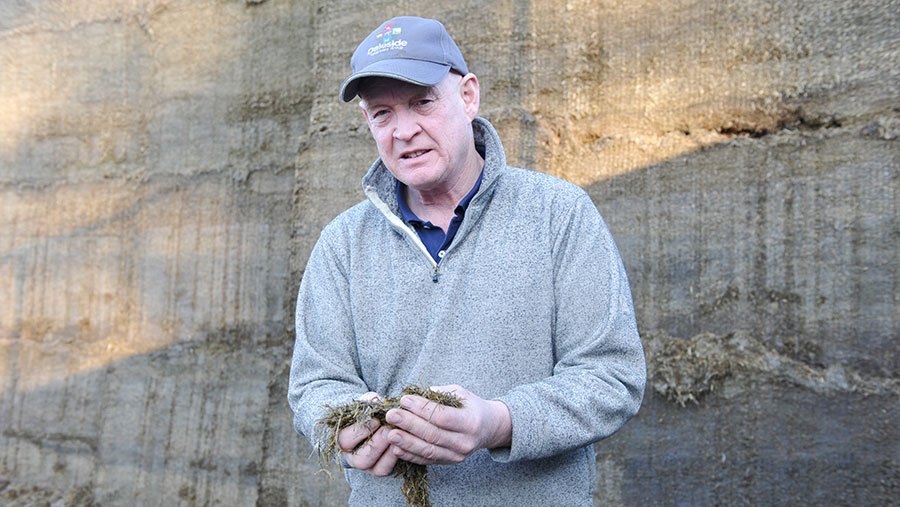New system could reduce slurry volume by 80%
 John Owen at Dairy Tech © Debbie James
John Owen at Dairy Tech © Debbie James A new slurry dewatering and purification system could reduce the volume of slurry by 80%, making it easier to store and spread.
The research project is being driven by Coleg Sir Gâr’s Gelli Aur agricultural campus and Power & Water, a Swansea-based company specialising in electrochemical-based water treatments.
It also aims to address the agricultural industry’s impact on the environment by reducing the risk of pollution and creating clean water to go back into watercourses.
“With the intensification of the dairy industry, slurry management is becoming an increasing issue for farmers and the environment,” said John Owen, farm manager at Coleg Sir Gâr.
See also: Guide to slurry assessment and application
He says this on-farm system could make slurry – which he describes as “a tremendous resource” – much more of an asset, focusing on nutrient and water recovery.
Nutrient recovery
It will allow farmers to use the nutrients from slurry in a more effective way and save costs through targeted application.
By reducing the water content of slurry and making it easier to manage and spread, it should also reduce any soil compaction caused by forced spreading in unsuitable weathers.
It also reduces the need for slurry storage and transport, leaving an end product of 20-25% dry matter, which is stackable.
Water recovery
Clean, safe water can be redirected to the watercourse or used as drinking water in sheds.
Mr Owen said: “We aim to reduce significantly the risk of air and water pollution at the same time as maximizing the recycling nutrient value. This development process will considerably reduce storage of slurry on farms as well as handling costs.
“Efficiently extracting nutrients from manures could save on the cost of commercial fertilisers and reduce serious environmental impact. However, poor manure management can cause pollutants, including nutrients, to enter the water cycle through run-off or drainage.”
Because the project is still a work in progress, there is no final cost for installing the system on farm, but the partners want to ensure it is competitively priced, to meet farm budgets.
|
Problem |
Potential solution |
|
Agricultural waste has high nutrient value and polluting potential in the water cycle |
Apply innovative and proven concept technology |
|
Larger herd sizes and intensive farming increases storage needs and spreading issues |
De-water slurry |
|
Increasing rainfall (climate change) requires tighter control of waste slurries and wastewater management on farms |
Reduce the risk of pollution |
|
|
Maximise the recycling nutrient value |
|
|
Reducing storage and handling cost |
See Coleg Sir Gâr’s video on the project below
